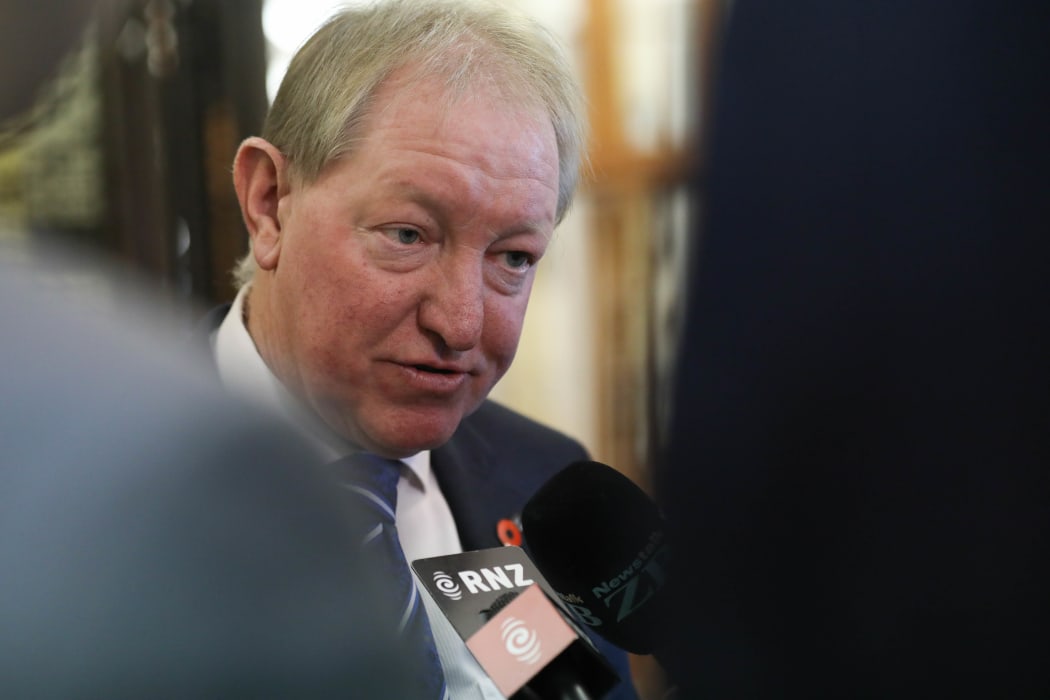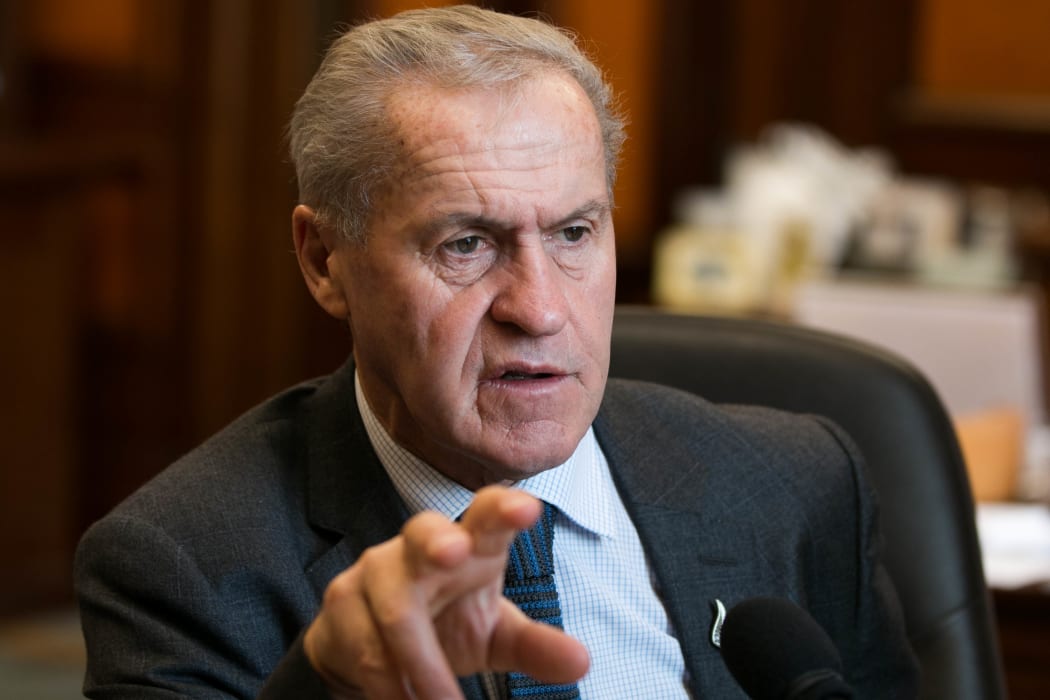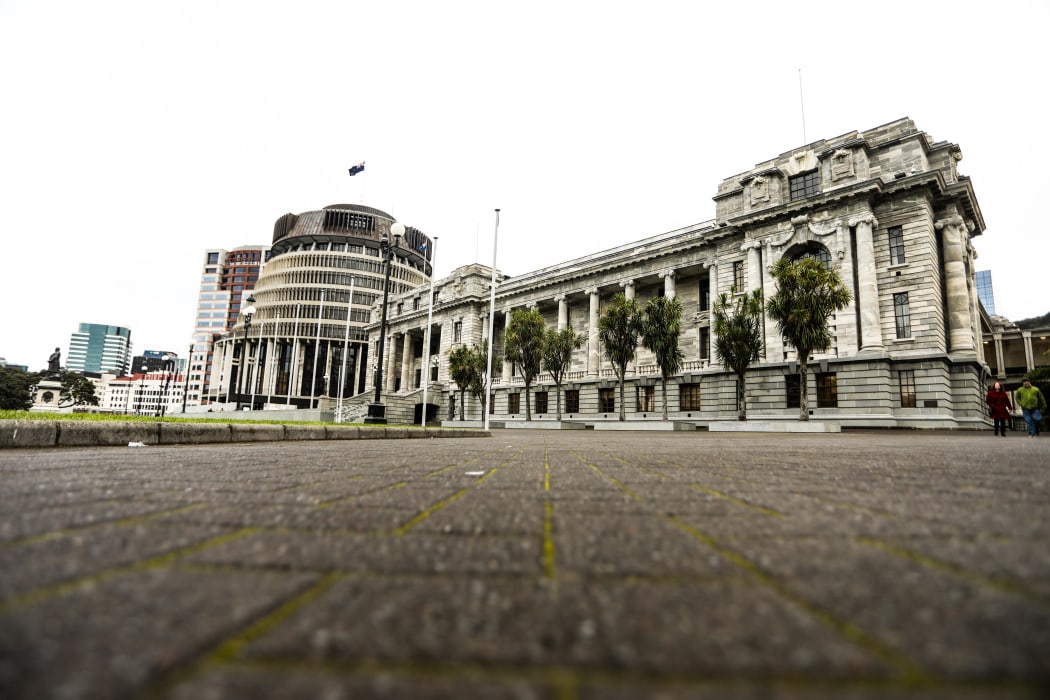There’s been a quiet revolution recently if some news reports or MPs are are to be believed.
I spotted it during the kerfuffle over whether a Select Committee should re-open submissions five months late. “Govt set to u-turn...” said a headline.
“The Government is now considering allowing China expert ...to make a submission…” declared a story on the same committee fracas.
‘Is it a revolution?’ I wondered. The government can't do that.
MP Nick Smith (in apparently, a serious breach of Parliament’s rules), said “The Beehive has recognised that silencing an academic… was a really bad look and they've had to reconsider.” Another clue.

National MP Nick Smith Photo: VNP / Phil Smith
Could it be that the Government has sneakily subjugated Parliament and stolen all of its power and responsibilities and no-one noticed? Or can they all be wrong?
Former Speaker, David Carter said recently about committee attendance… “National was there with its MPs at 8am. Government is there with four… .”
Government filling select committees. Has there been a coup d’etat?
But no, nothing so exciting. Just an outbreak of wrong. MPs and the public seem equally confused about how parliament works, what government is and the role of select committees.
It’s lucky they’re wrong, or who really holds power in New Zealand would have quietly changed.

National MP and former Speaker, David Carter Photo: VNP / Daniela Maoate-Cox
The way it works
1. Parliament is the boss of New Zealand, not government. Surprise! Government gets a lease on power only for as long as they enjoy the trust of ‘the House’ of Representatives. All of government’s decisions are enabled or approved by Parliament.
2. Labour, Green or New Zealand First MPs who aren’t Ministers are not in the Government. This is something everyone gets wrong all the time. They are part of the House and their job is to hold the government to account - just like the opposition.
3. Select committees are Parliament’s creatures, not the Government’s. Their size and number are set by the House. Their membership is approved by the Business Committee (an all-party sub-set of the House). Their rules are those of the House, their chairs are MPs from outside the Government.
4. The MPs on select committees are from parliament, but not from government. The cabinet doesn’t have any members on subject Select Committees. Not any.
While party politics certainly plays into how MPs behave and vote in select committees, committees are not run by the Government.
In fact that would be difficult to achieve. Nearly half of the committees are chaired by opposition MPs. It would be spooky if Gerry Brownlee, David Bennett, Simon O'Connor, Jonathan Young, Parmjeet Parmar, and Brett Hudson were suddenly doing the Government's bidding.
The whole point of select committees is to scrutinise legislation, and the Government's spending and performance on behalf of the House. They're basically the House investigating Government.
Most MPs take this role very seriously. To paraphrase how one opposition MP described his Select Committee job, ‘even if I disagree with the intent of a bill, it’s my responsibility to help make it the best bill it can be’.

To make it easy Government (the Beehive) and Parliament (Parliament House) are centred in different buildings. Photo: VNP / Daniela Maoate-Cox
All these overlapping groups
- Parliament is all the elected MP from all parties, plus (and most people forget this) the Governor General.
- The House of Representatives is all the elected MPs. It’s the legislature and referred to as the House.
- The House of Representatives supplies (from among its members) a ‘government’ or ‘ministry’ which is a nebulous term describing the leadership of the ship of state.
- Constitutionally, the power of government is held by The Executive Council, which is the Governor General and all her Ministers.
- In practice, day-to-day governing is done by the Cabinet (the senior ministers). The cabinet is kind-of a sub-committee of the Executive Council, approving government policy and legislation, and deciding what the Executive Council should recommend to the Governor General.
- There are also 'ministers outside cabinet' and 'parliamentary under-secretaries' who only get to turn up to cabinet when it is discussing their specific work. They're not really on 'the inside' of government.
Asides for the careful reader
-
There are committees that may include members of the cabinet - they are the non-subject committees (Business, Standing Orders, Officers of Parliament, and Privileges), which administer Parliament, rather than the subject committees which scrutinise bills and government.
-
Ministers Outside Cabinet and Parliamentary Under-Secretaries can (and a few do) serve on committees. They tend to serve on committees unrelated to their own role.
-
The above are both conventions rather than absolute rules. They are noted in the Cabinet Manual (7.108) rather than Standing Orders; "Cabinet Ministers are not usually appointed to the subject select committees, but Ministers outside Cabinet may be appointed as members."


